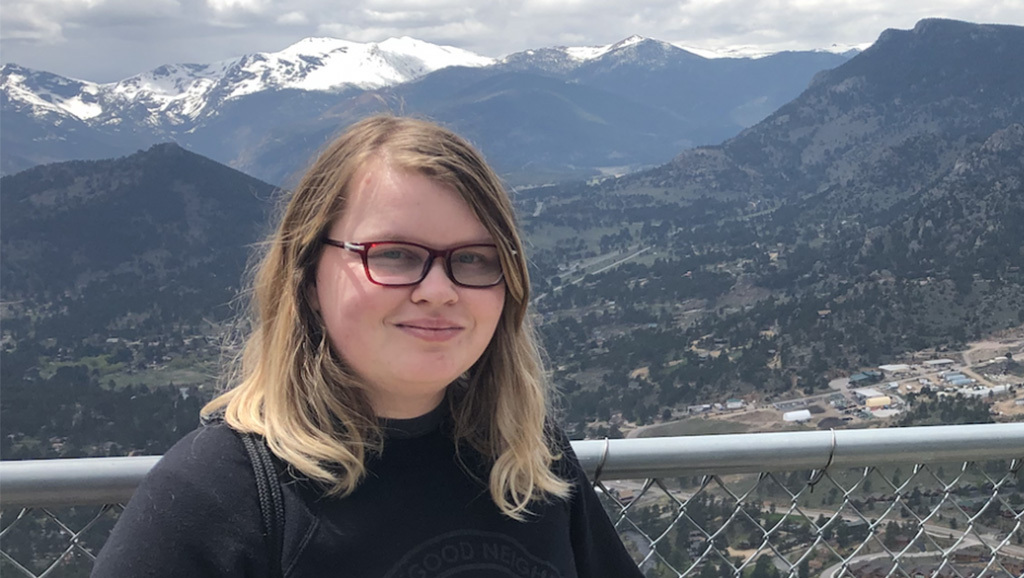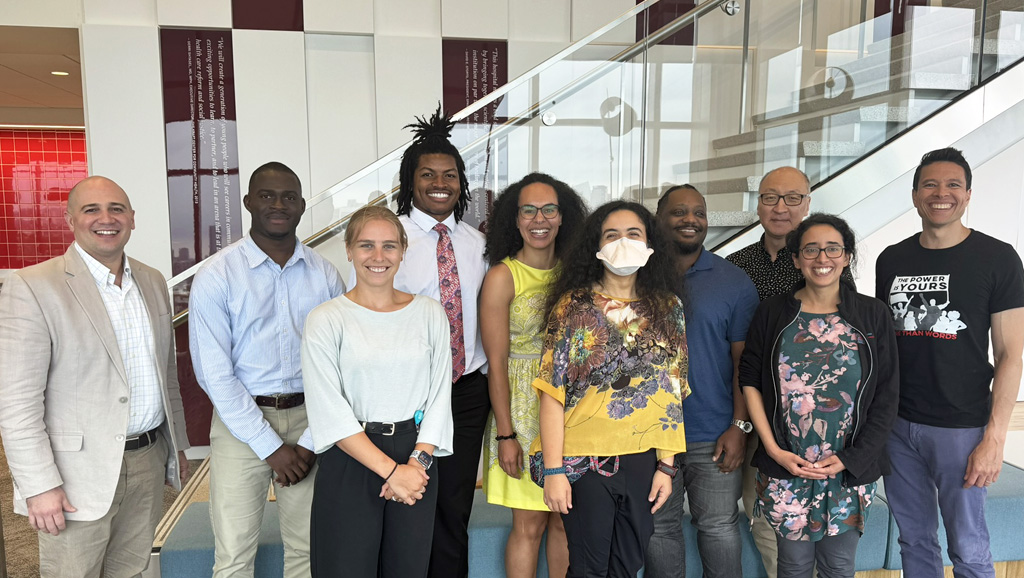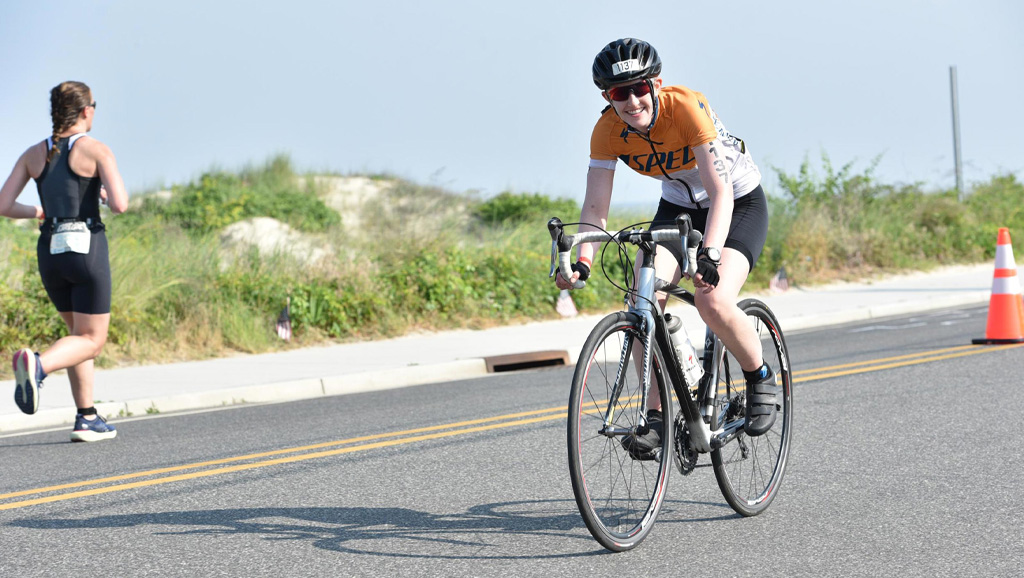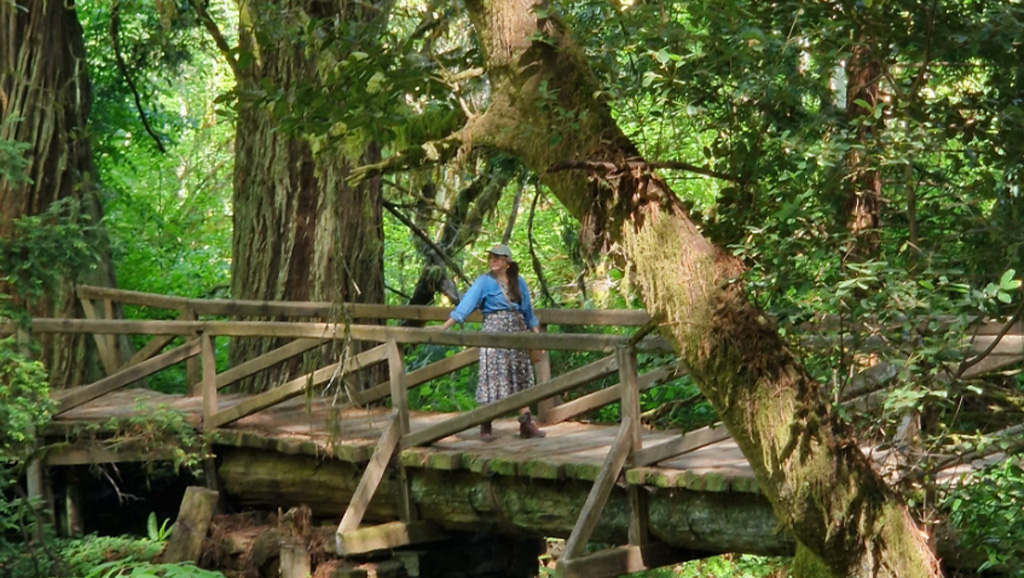News & Insights
Bridging the Gap: Civic Science Fellow Leanna Kalinowski

Civic science aims to ensure that scientific research reflects the needs, values, and priorities of diverse publics—ideally, all of society. Its approaches involve improving research practices, enhancing communication among community stakeholders, and fostering meaningful engagement with different institutions and communities to make science more inclusive and thus more effective in the “real world.”
The Dana Foundation and other nonprofits together support the Civic Science Fellowships, a program of grants for host institutions to each sponsor a Fellow who will develop and test approaches to civic science and also participate in a network of people devoted to this work. Their aim is to ensure that the processes and products of science both reflect and improve society. The Dana Foundation is supporting three fellows in the 2024 cohort under its Dana Frontiers program. One Fellow, Leanna Kalinowski, M.P.H., is based at Neuromatch, a nonprofit dedicated to making computational science training accessible to all.
When behavioral neuroscientist Leanna Kalinowski discovered that common practices in ADHD treatment could have lasting neurological effects, at least in rats, she felt a disconnect. Her research on “drug holidays”—planned breaks from medication often taken during school vacations—found potential long-term impacts. While her research was published and later presented at scientific conferences, it wasn’t reaching the people who needed it most—the physicians, parents, and children directly affected by these findings.
“I felt that this work was too isolated from those who could truly benefit from it,” Kalinowski says. This realization sparked a pivotal shift in her career, leading her from the lab bench to the forefront of civic science initiatives.
The Civic Science Fellows project comes at a critical time, when public trust in science is eroding and research impact often falls short of its potential.
“Up to 80 percent of health research never translates into policy or practice,” Kalinowski says, highlighting the urgent need for better communication and collaboration between scientists and other parts of society. This statistic underscores the importance of civic science in ensuring that scientific advancements are not just breakthroughs in the lab, but meaningful improvements in people’s lives.
Exploring Computational Science
At Neuromatch, Kalinowski is focusing on examining how computational scientists, including those studying computational neuroscience and artificial intelligence, perceive and engage in civic science.
“There are so many societal issues that computational science can either help or exacerbate,” she says. From brain-computer interfaces that could revolutionize treatment for neurological disorders or lead to DIY projects of “brain enhancement” to healthcare algorithms that might perpetuate medical racism, the potential impacts are vast and complex.
Kalinowski’s approach is both innovative and inclusive. She’s currently conducting a global survey—the first of its kind—to explore civic science behaviors, attitudes, and motivations among scientists (current, former, and aspiring) across all career levels (including students), from all research disciplines and countries. (Help her out! Take the survey)
Civic science includes practices like open science (making formal research reports accessible without a paywall) and a wide variety of science communication approaches. “Civic science is still an emerging field, and such a broad-scale survey has never been conducted before,” she says. “I’m really excited to collect and analyze these data.” The positive response from both her Civic Science Fellowship cohort and from employees of scientific societies—who have already requested copies of her upcoming report on results—underscores the timeliness and importance of her work.
Paving the Way for Inclusive Science
Looking ahead, Kalinowski sees a shift on the horizon—and very soon. “In the next two to three years, I think we’re going to see a real change in how civic science influences scientific research,” she predicts. While currently there’s a lot of talk about the importance of civic engagement, institutional support often lags a bit behind.
Kalinowski predicts a near future where institutions not only recognize but actively reward civic engagement, encouraging scientists to work more closely with policymakers and public communities. “Not all scientists need to leave the lab [entirely] to have an impact on society,” she says.
As her fellowship progresses, Kalinowski plans to use her findings to develop training programs for early-career researchers on targeted methods of civic science engagement.
“Science is always better when people are working together towards innovative solutions that address real community needs, rather than screaming into an echo chamber to continuously repeat past studies and conclusions.” Her goal is to foster more collaborative and impactful research that resonates with and is applicable to everyone, regardless of their specific research area or intended outcomes.
“Civic science is incredibly diverse,” Kalinowski says. “Not everyone needs to do an intense career shift into civic science like I did to have an impact on society. Even smaller things like participating in a Brain Awareness Week campaign can have an impact.”
Through her work at Neuromatch and beyond, Leanna Kalinowski is not just bridging the gap between science and society—she’s helping pave the way for a more inclusive, effective, and trustworthy scientific future.



